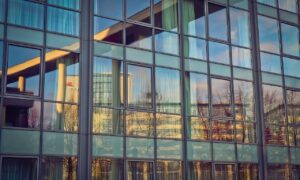When considering commercial spaces, safety and durability take precedence, especially in high-traffic or hazard-prone areas. Glass Governor Of Atlanta, recognized as the top provider of Atlanta glass and mirror products and services, acknowledges the significance of security and reliability in material selection. Their expertise extends beyond mere installation to offering comprehensive insights into maximizing safety with commercial glass solutions. With a focus on quality craftsmanship and innovative approaches, they ensure that every installation meets the highest standards, providing businesses with peace of mind and confidence in their glass investments.
Importance of Safety and Security Considerations
1. Mitigating Accident Risks
In bustling commercial environments, constant foot traffic heightens the risk of accidents involving glass. Prioritizing safety entails employing impact-resistant glass and strategic placement to minimize injuries from collisions or falls, fostering a secure environment for all occupants.
2. Preventing Break-ins and Vandalism
Integrating security features like laminated or bullet-resistant glass fortifies commercial properties against break-ins and vandalism. This proactive approach not only deters unauthorized access but also safeguards valuable assets, bolstering the overall security posture.
3. Enhancing Occupant Safety
Addressing safety concerns in glass design fosters a sense of security among occupants, including employees, customers, and visitors. Implementing measures such as safety glass and clear signage communicates a commitment to their well-being, promoting trust and confidence in the establishment.
4. Maintaining Aesthetic Appeal
Balancing safety with aesthetics involves selecting glass solutions that enhance the visual appeal of the space. Opting for sleek, modern designs and incorporating decorative elements can elevate the ambiance while reinforcing the professionalism and quality associated with the business.
5. Compliance with Regulations
Regulatory compliance ensures that glass installations meet mandated safety standards, safeguarding against potential legal repercussions. Adhering to building codes and industry regulations not only mitigates liability but also demonstrates a commitment to maintaining the highest safety standards for occupants and stakeholders alike.
Types of Safety Glass
1. Tempered Glass
Through a process of rapid heating and cooling, tempered glass gains strength up to five times greater than regular glass. This increased resilience makes it suitable for areas prone to impacts, such as storefronts or shower enclosures. Additionally, its resistance to thermal stress makes it an ideal choice for environments with fluctuating temperatures, ensuring longevity and safety.
2. Laminated Glass
Composed of two or more layers bonded together with an interlayer, laminated glass exhibits exceptional durability and security. In the event of breakage, the interlayer holds the glass fragments in place, reducing the risk of injury from sharp shards. This characteristic makes it indispensable for overhead installations like skylights or glass floors, as well as in areas requiring heightened protection against forced entry or vandalism.
3. Impact-Resistant Glass
Engineered to withstand severe force, impact-resistant glass offers unparalleled protection in environments where security is paramount. Whether facing hurricanes, riots, or potential intruders, this glass type provides a robust barrier against external threats. Its resilience to impact minimizes the risk of penetration, ensuring the safety of occupants and property within commercial buildings.
4. Bullet-Resistant Glass
Combining layers of glass and polycarbonate, bullet-resistant glass is designed to withstand ballistic impact, safeguarding against armed attacks. The specialized construction absorbs and dissipates the energy of projectiles, preventing penetration and reducing the risk of injury or loss of life. Widely utilized in critical infrastructure and high-security facilities, it serves as a crucial deterrent and protective measure against armed threats.
5. Fire-Rated Glass
Engineered to contain fire and smoke, fire-rated glass plays a vital role in maintaining safety during emergencies. Its composition includes intumescent interlayers that expand under high temperatures, forming a barrier against flames and toxic gases. This containment capability facilitates safe egress and prevents the spread of fire, mitigating the potential for property damage and protecting occupants’ lives in commercial settings.
Selecting Appropriate Glass Types
1. Assessing Security Requirements
conduct a thorough assessment of security needs by considering factors like the level of foot traffic, proximity to potential hazards, and susceptibility to break-ins. Understanding these variables enables tailored solutions to mitigate specific risks effectively.
2. Understanding Building Codes
Delve into the nuances of local building codes to ensure compliance with requirements governing glass installations. This includes specifications on glass type, thickness, and placement to uphold safety standards and avoid costly violations.
3. Consulting with Experts
Engage seasoned professionals specializing in commercial glass installation, such as Glass Governor Of Atlanta, to leverage their expertise. Collaborating with knowledgeable professionals facilitates informed decision-making, ensuring the optimal selection of glass types and thicknesses aligned with security objectives and regulatory mandates.
Conclusion
In the realm of commercial glass, prioritizing safety and durability is non-negotiable. Glass Governor Of Atlanta emphasizes the importance of selecting the right glass solutions to meet security needs effectively. By understanding the various types of safety glass available and adhering to building codes, businesses can fortify their premises against potential threats. Remember, when it comes to commercial glass Atlanta, safeguarding lives and property remains paramount.































